
We kindly inform you that, as long as the subject affiliation of our 300.000+ articles is in progress, you might get unsufficient or no results on your third level or second level search. In this case, please broaden your search criteria.

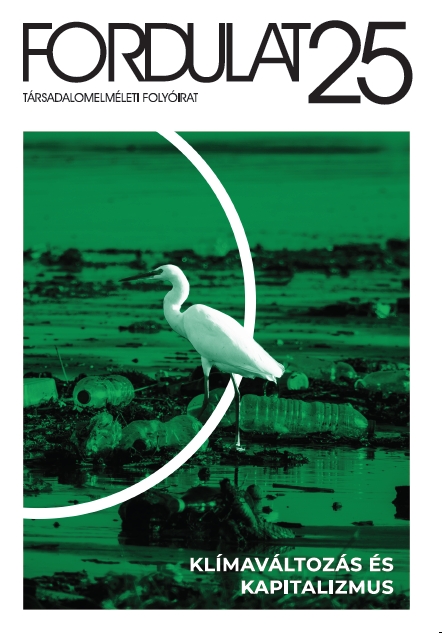
The Anthropocene narrative portrays humanity as a species ascending to power over the rest of the Earth System. In the crucial field of climate change, this entails the attribution of fossil fuel combustion to properties acquired during human evolution, notably the ability to manipulate fire. But the fossil economy was not created nor is it upheld by humankind in general. This intervention questions the use of the species category in the Anthropocene narrative and argues that it is analytically flawed, as well as inimical to action. Intra-species inequalities are part and parcel of the current ecological crisis and cannot be ignored in attempts to understand it.
More...
In the last decades the Capitalocene discourse was emerging in the Marxist ecological thinking. This approach offers a sociohistorical explanation to the current ecological crisis by questioning the historical narrative of the Anthropocene discourse. Authors of Capitalocene are arguing that climate change and ecological crisis was not caused by the collective and homogenous humanity (predetermined by the human nature). According them capitalism’s accumulative and expropriative socioeconomic relations are responsible for climate crisis.This paper analysis how Capitalocene-arguments are applying the Marxist critique of capitalism, especially the labour theory of value and its contemporary expansions and corrections in the understanding of the current ecological crisis. The first two subchapters are summarizing World-Ecology theory of Jason W. Moore, than I interpret the debate of Moore with the Metabolic Rift school (John Bellamy Foster, Paul Burkett, Andreas Malm and others), and finally I analyse the possible normative ecopolitics from the theoretical perspective of Capitalocene.In the last decades the so-called Capitalocene discourse was emerging in the Marxist ecological thinking. This approach offers a sociohistorical explanation of the current ecological crisis by questioning the historical narrative of the Anthropocene discourse. Authors of Capitalocene are arguing that climate change and ecological crisis were not caused by the collective and homogenous humanity (predetermined by the human nature) in general. According them capitalism’s accumulative and expropriative socioeconomic relations are responsible for climate crisis.This paper analysis how Capitalocene-arguments are applying the Marxist critique of capitalism, especially the labour theory of value and its contemporary expansions and corrections in the understanding of the current ecological crisis. The first two subsections are summarizing World-Ecology theory of Jason W. Moore, than the paper interprets the debate of Moore with the Metabolic Rift school (John Bellamy Foster, Paul Burkett, Andreas Malm and others), and finally it analyses the possible normative ecopolitics from the theoretical perspective of Capitalocene.
More...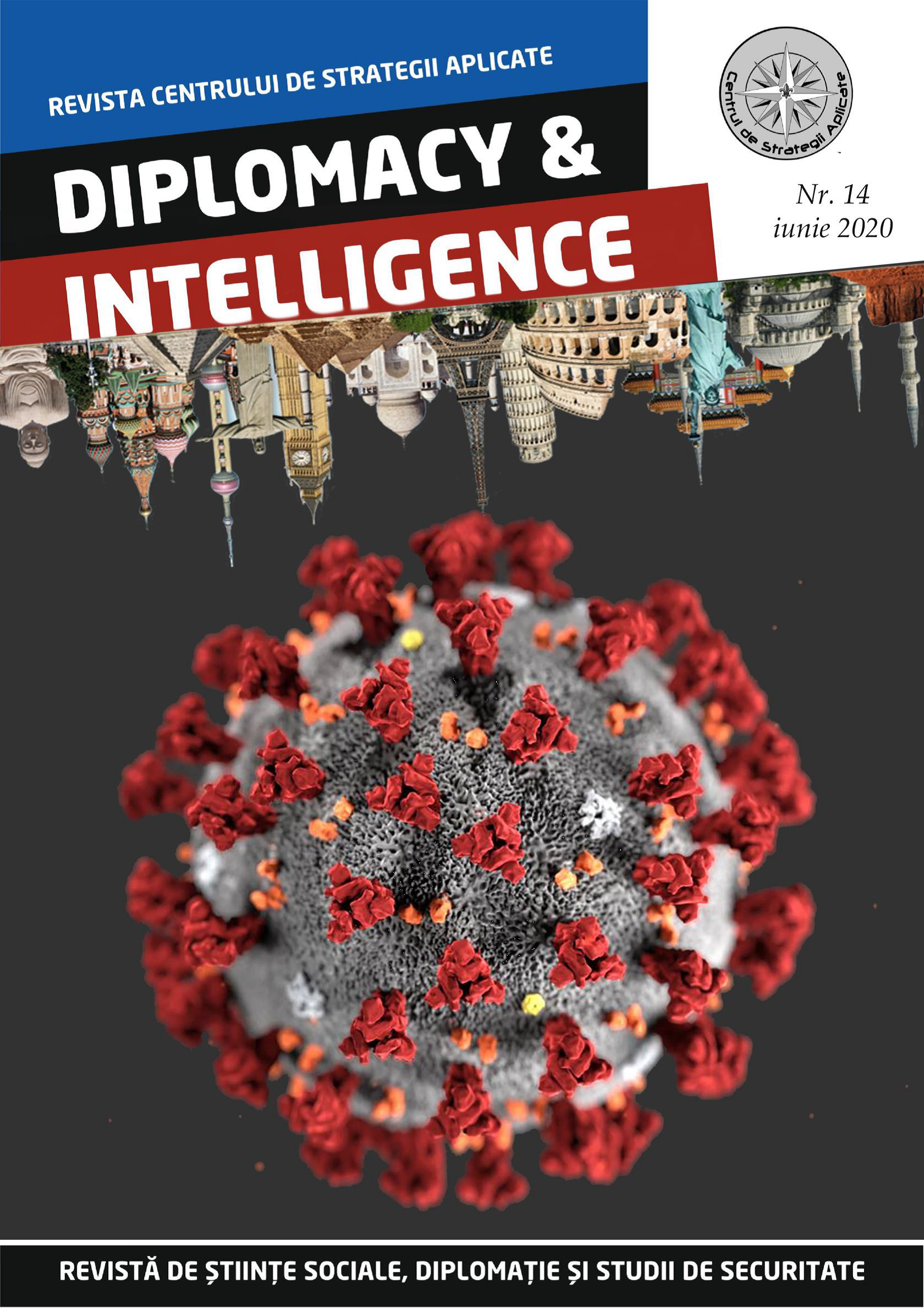
While governments and international organizations had more or less prepared plans for a global pandemic, the planning of the accompanying economic shock was much less studied. This paper summarizes research-based policy analyzes and comments on COVID-19 economic measures from international institutions and leading economists. Topics will cover international mechanisms for preventing and combating the effects of the pandemic (trade, capital flows, financial institutions, expectations, etc.), as well as internal impact, such as the size, persistence and sectoral composition of economic instruments. Topics covered also include the impact on political economy, income and inequality, environmental impact, job insecurity, education and research.
More...
The following text presents issues related to the protection of the environment against the aircraft noise. The subjects of the survey are the Copernicus Airport Wroclaw- Starachowice and the local population. The main aim is to determine the effect of activities undertaken by the Wroclaw Airport towards noise reduction, and to examine their real-life practicality. The objective was to investigate the noise nuisance by the means of a survey conducted among the airport locals. The main topics of the research are included in three questions, namely: What is the level of noise caused by the Copernicus Airport? What are the airport actions in order to minimalize the noise level? How is the noise evaluated by residents of the airport area? Research methodology is based on the assumption that the actions undertaken by the Wroclaw Airport aim to reduce the level of aircraft noise..
More...
The analysis of sociocultural responses and behavioral strategies to address the consequences of local disasters is aimed at supporting the development of models of rational and socially adequate behavior to prevent and limit the effects of disasters,which could be useful in documents and policies of an official nature among local and central authorities and increase their effectiveness.
More...
On April 26, 1986, the accident at the Chernobyl nuclear power plant in Soviet Ukraine occurred and it is known as one of the greatest disasters in the history of nuclear energy. Immediately after the accident, dozens of people lost their lives, hundreds developed the so-called radiation sickness, hundreds of thousands have been evacuated and displaced, and the surrounding flora and fauna were severely affected. The resulting cloud of radioactive particles passed through a number of countries in Northern, Eastern and Southern Europe and led to long-term negative consequences in the health of a significant part of the population. The following article introduces the primary results of a joint historical and ethnological study, conducted both in Russia and Bulgaria, on the memories of contemporaries of this technological disaster which had global consequences. The aim is to analyze how the population today in both countries is reflecting on the Chernobyl accident in terms of its awareness and the degree of the impact; its reaction and preparedness; the measures applied by the responsible institutions; short-termand long-term consequences. The methodology of the study at this stage includes a comparative analysis of the results of in-depth interviews among Russians and Bulgarians conducted in early 2021.
More...
The article’s aim is to provide a definition of the science of communication together with the delimitation of the field of research and the identification of a general research method. The starting point is the general phenomenon of communication in the living world, as the research field of communication science is limited, by successive delimitations, to media discourses. The most important aspect that has been highlighted is the political nature of media speeches. Politics de-homogenizes the discursive mass and at the sometime provides a clear criterion for classifying discourses. Thus, insofar as communication is media-based, it is also a political communication.The science of communication is defined as the study of the phenomenon of integration and discursive distancing, in other words of the discursive competition and social negotiation. The starting point of the entire process of definition is the work“ Autonomous Discourse. Communication Strategies”(2013).
More...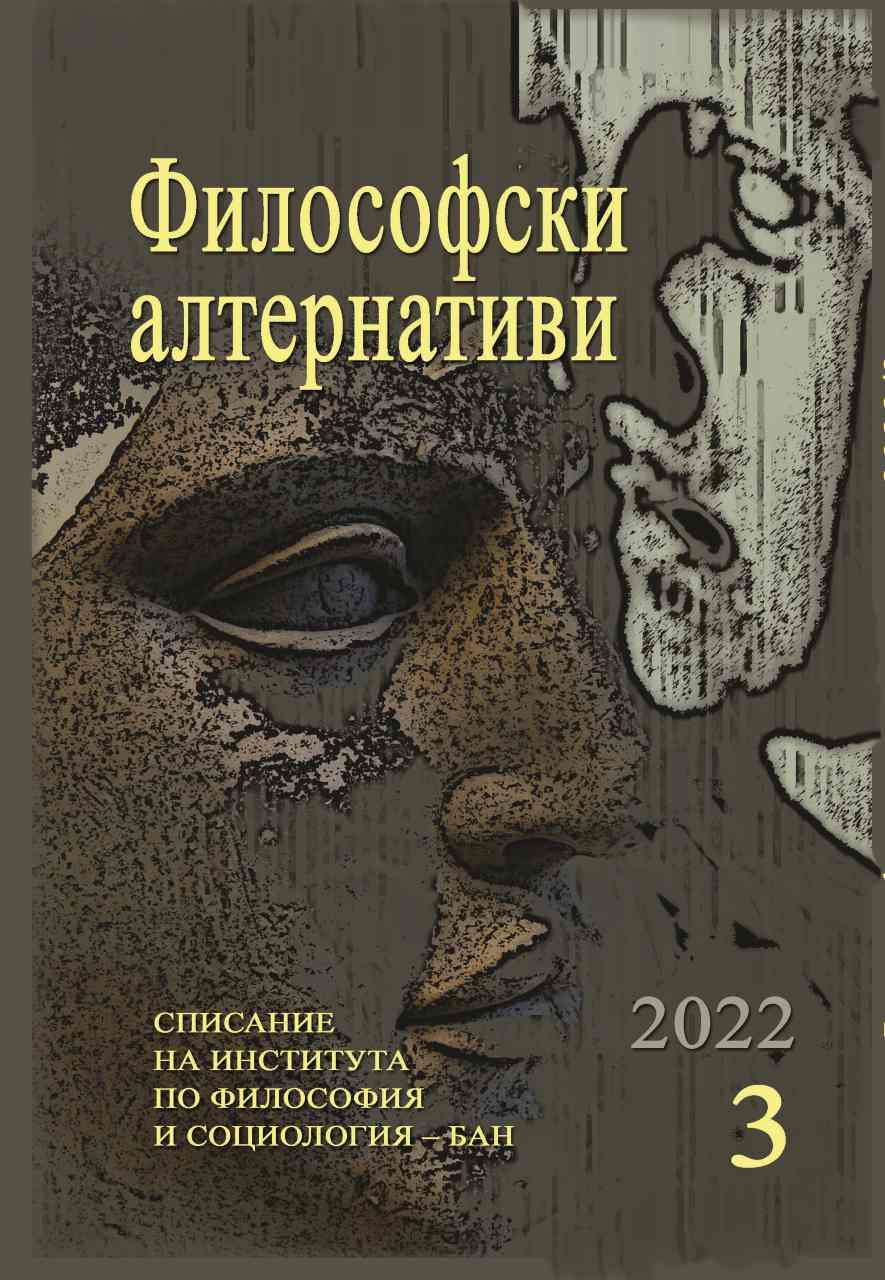
This text is by Pyotr Savitsky, a Russian economist and geographer (1893–1979), one of the four authors who established the Eurasian movement as a post-revolutionary movement of Russian émigrés, and published the collection Exodus to the East (Sofia, 1921).
More...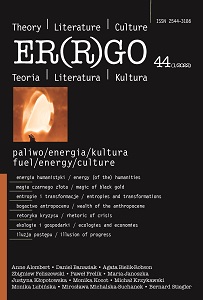
This paper argues that what we commonly mean by “labour” in industrial democracies stems from the obsolete theoretical assumptions of neoclassical economics, which also serve as foundations for a highly entropic economic process. Therefore, to determine the new purposes and functions of what working means is necessary in order to redesign economy and, consequently, to offer an alternative to the Anthropocene. The article develops Bernard Stiegler’s take on work and discusses the way Stiegler brings up to date the theoretical reflection on the transformations of work undertaken by André Gorz. The article addresses the question of work in relation to energy crisis and work automation. Advocating for a redefinition of work beyond employment, the article envisages work automation as a new opening for what work denotes, rather than the end of work. However, two conditions must be met in order to make such a change possible; it is necessary to redefine work beyond employment and socialize benefits from work automation.
More...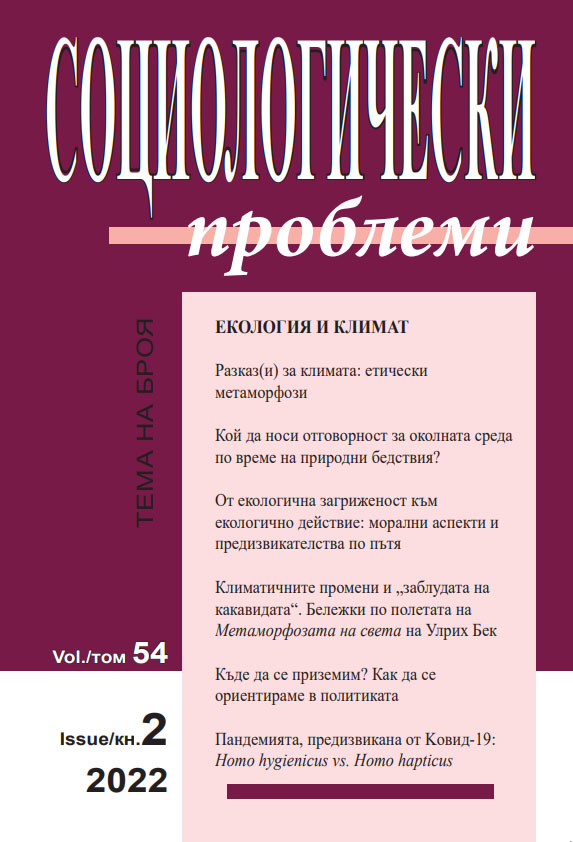
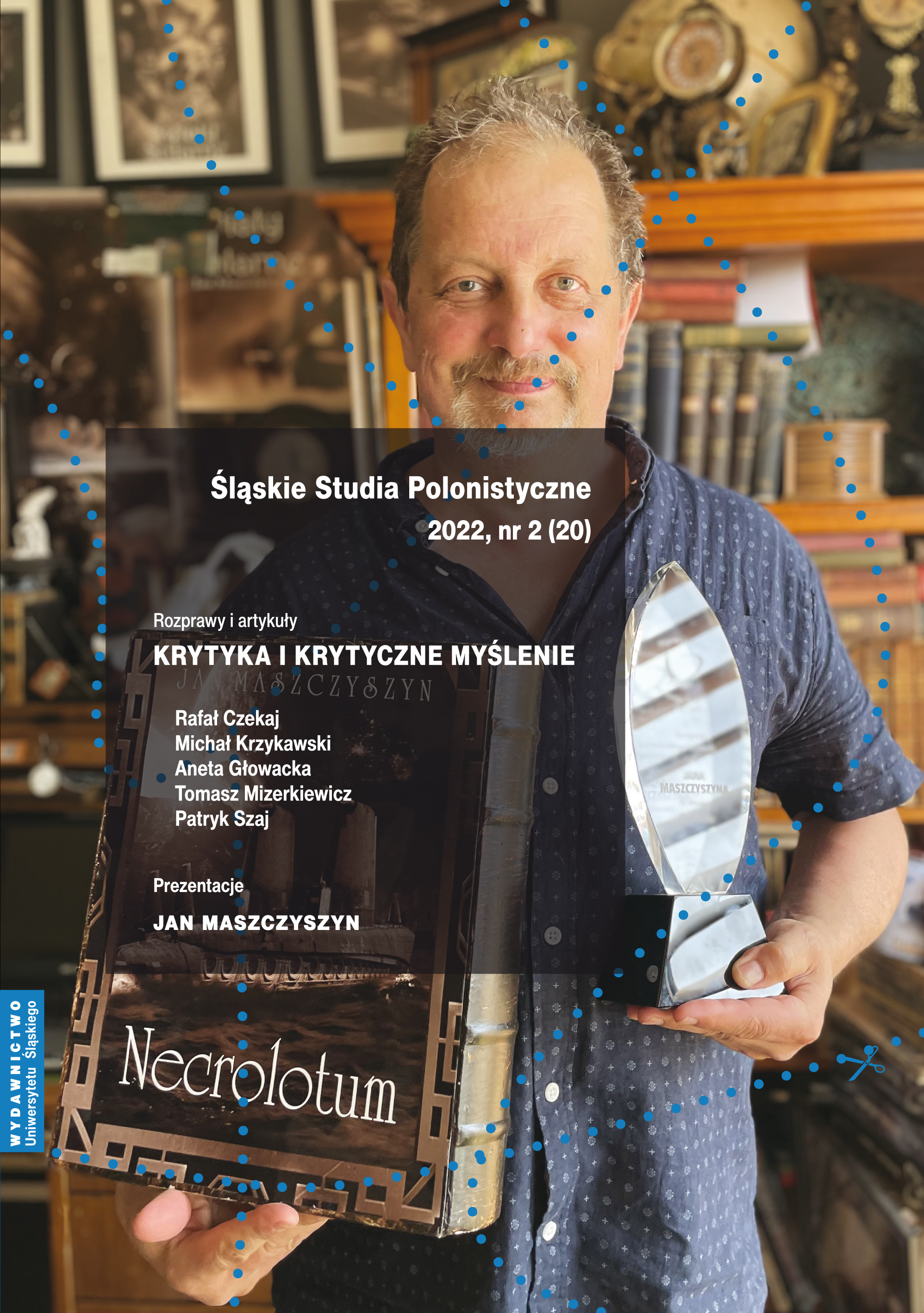
In the article, it is argued that in order to rejuvenate critical theory we need to revive the critique of technology first and, by the same token, redefine the very concept of critique in the context of the digital reality, with an account of how digital devices impact our ability to think in general. The function and meaning of critique under new circumstances (conceptualized as technostress) is discussed in a dialogue with three thinkers: Immanuel Kant, Michel Foucault, and Bernard Stiegler. It also suggests how Bernard Stiegler’s philosophical critique can be fruitfully these combined with social theory developed by Hartmut Rosa.
More...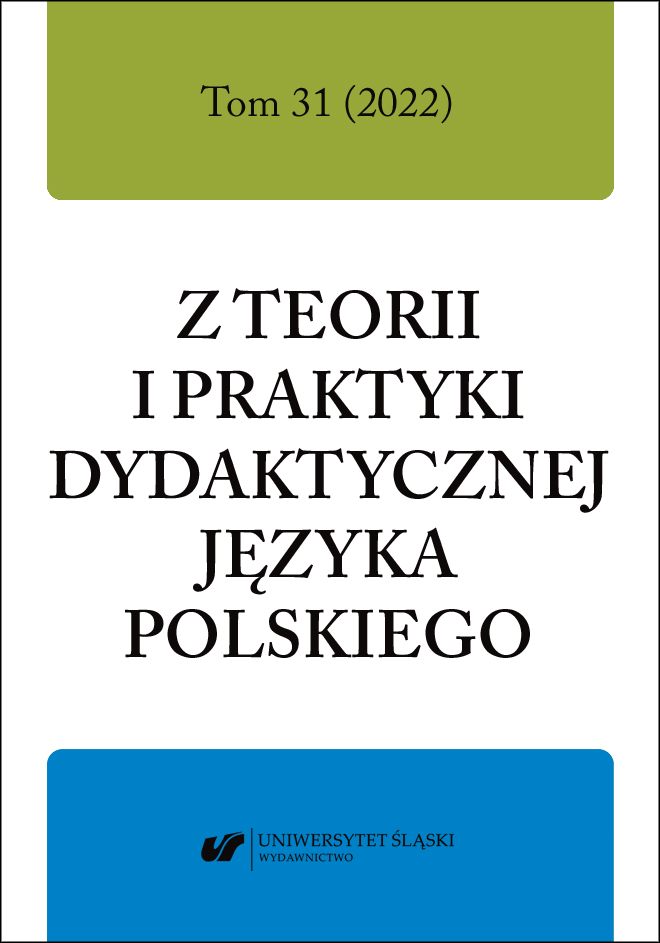
Kordian Bakuła’s article deals with chosen problems of ecological humanities. Adolf Dygasiński’s short story has been regarded as a precursor of contemporary trends in the humanities due to the way in which it addresses issues which are alive and topical nowadays: natural cultivation of truth, sensual and direct cognition, coexistence and compassion with nature. According to Bakuła, they constitute the project of the natural secular humanities.
More...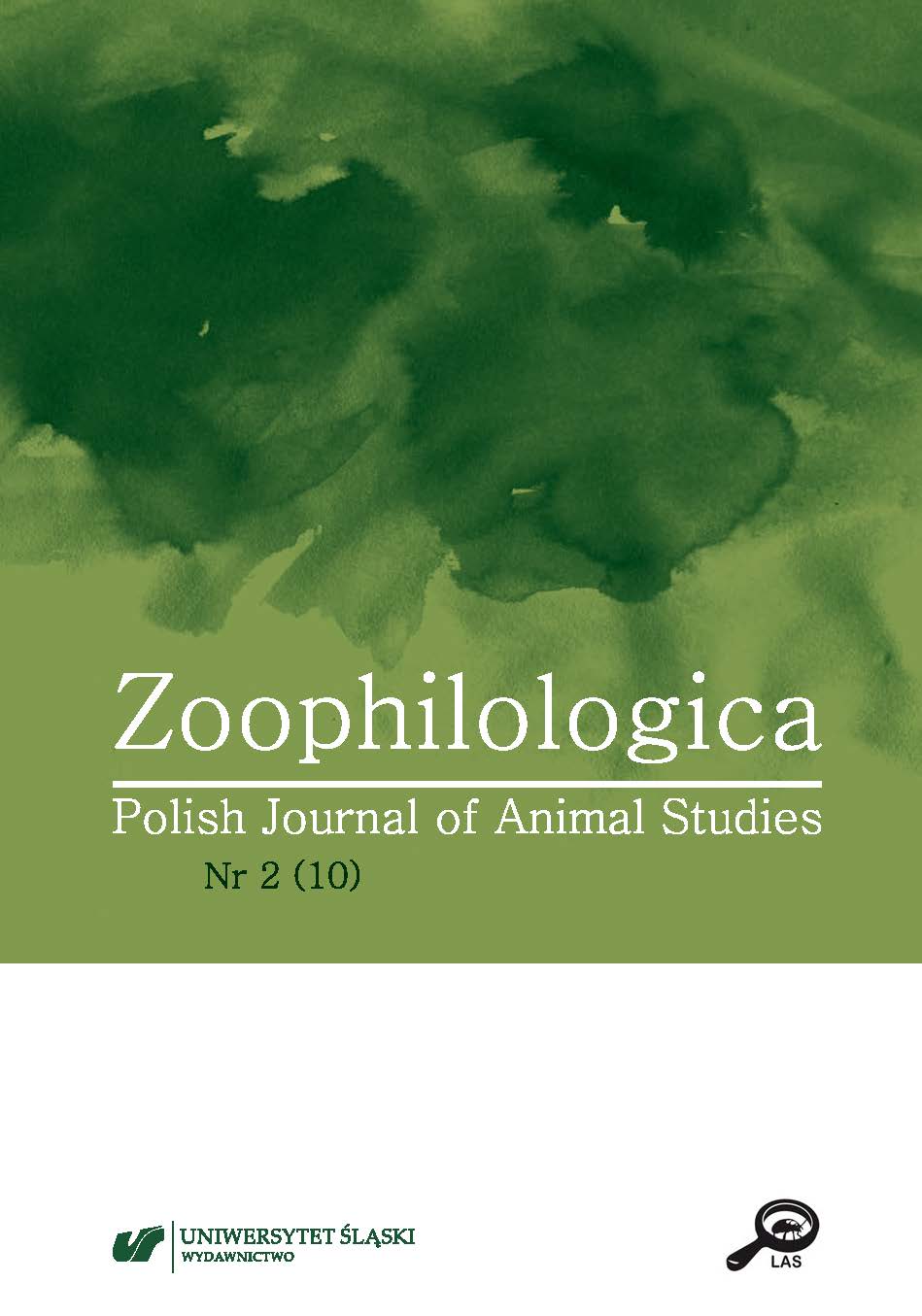
Anouk Herman’s aim in this article is to introduce the ecofeminist theory of the animal subject and its absent referent in the poetry book Matecznik by Polish author Małgorzata Lebda. Ecofeminism provides tools for elaborate analysis of the conceptual connections between women (as well as persons of nonbinary identities) and animals and may be used as a theoretical background for ecocritical research on literature. Ecofeminist philosophers Carol J. Adams and Marti Kheel have developed theories regarding relationships of human and non-human phenomena. They examine the issues of sexuality and carnality in the context of the killing and hunting of animals, themes which constitute important motifs in Lebda’s poetry.
More...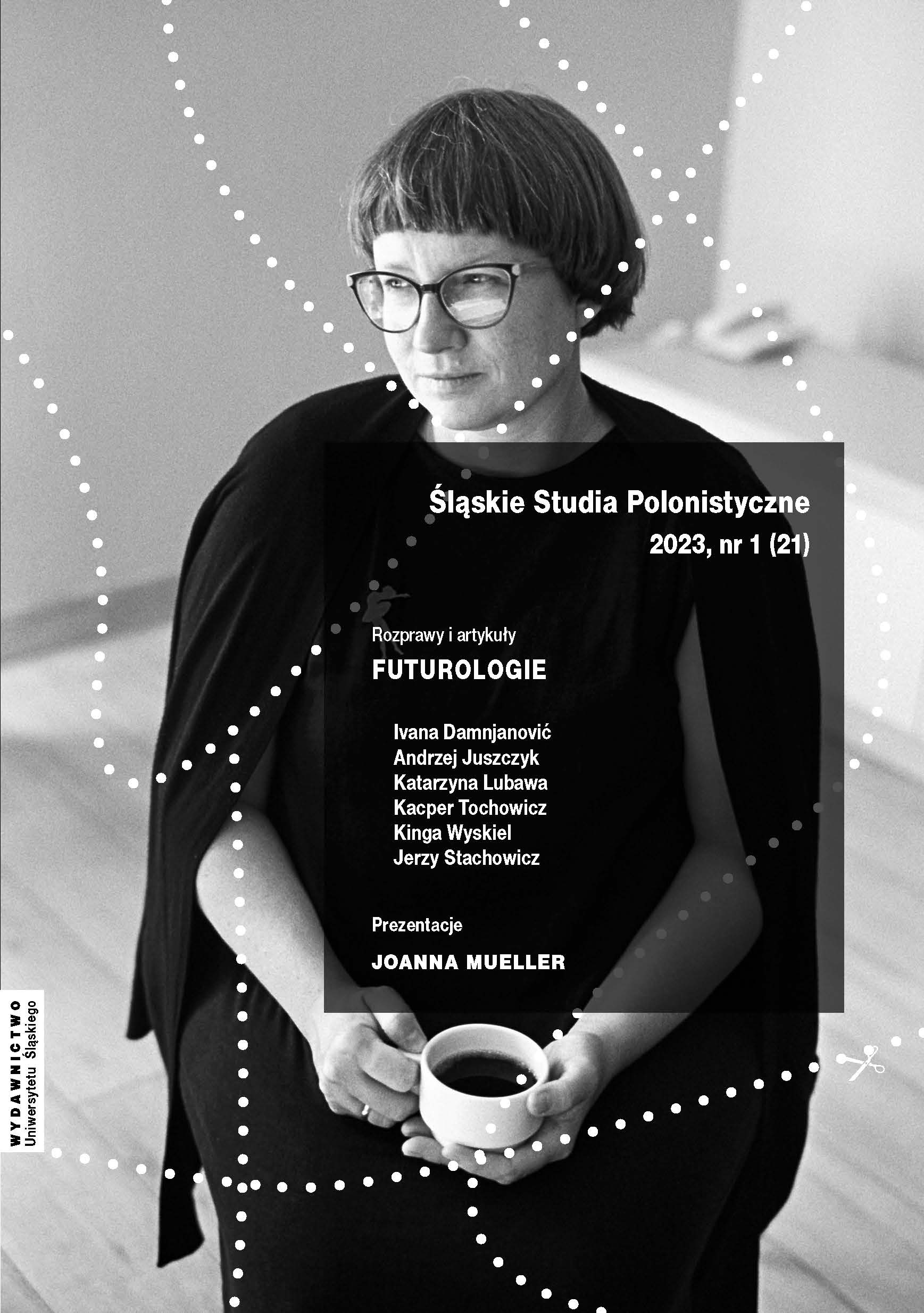
This article explores the significance of Earth in the futurological vision presented by Kim Stanley Robinson in his novel titled 2312, maintained in the genre of climate fiction. Intense technological development together with the progressive degradation of the natural environment served as the foundation for a pessimistic perspective, which resulted in the motif of leaving our planet in order to build life anew in other parts of the universe in the literary discourse. Robinson contrasts this direction in thinking about the future with an optimistic narrative, centred around restoration and a return to roots. The text provides an analysis of such an approach, and shows the speculative nature of the picture of humanity outlined in Robinson’s novel. In addition, the aim of the article is to point out the links between the work and a trend which is developing in the space of science fiction – solarpunk.
More...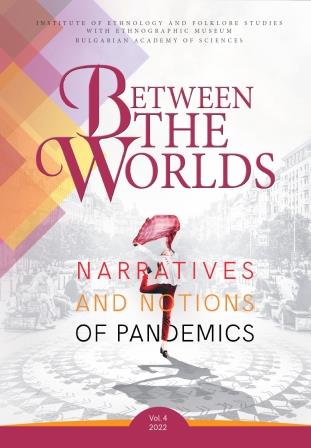
With the high levels of uncertainty and vulnerability created in everyday activities, the COVID-19 outbreak has prompted a proliferation of narratives. Against the official narrative crosscutting the worlds of science, medicine, social measures, and personal responsibilities, many conspiracy theories have emerged. In this study, we examine both the official COVID-19 narrative and various conspiracy theories as conforming to a format called the pending narratives (Törrönen, 2021). Pending narratives are future-directed stories operating on three levels – story, discourse, and norm – to call their audience for a certain course of action. As such, they are inherently rhetorical, and their audience evaluation is informative of their rhetorical qualities. To examine the reception and evaluation of COVID-19 narratives by young people, we used 27 semi-structured online interviews conducted between June and October 2021 with freshmen university students across Turkey. While the official narrative was emergent throughout the interviews, we asked specifically about certain alternative stories (lab leak, population weapon, hidden elites). Our analysis shows that both the official and the conspiracy narratives have some purchase among the Turkish students. We thus divide the interview responses into three groups: adhering to the official narrative, adhering to the conspiracy theories, and those that are ‘inbetween’. Focusing specifically on the latter group, our analysis maps the reasons for which the interviewees criticise, debunk, and refute various narratives. We conclude by assessing the rhetorical qualities and appeal of the lab leak, population weapon, and hidden elites conspiracy theories.With the high levels of uncertainty and vulnerability created in everyday activities, the COVID-19 outbreak has prompted a proliferation of narratives. Against the official narrative crosscutting the worlds of science, medicine, social measures, and personal responsibilities, many conspiracy theories have emerged. In this study, we examine both the official COVID-19 narrative and various conspiracy theories as conforming to a format called the pending narratives (Törrönen, 2021). Pending narratives are future-directed stories operating on three levels – story, discourse, and norm – to call their audience for a certain course of action. As such, they are inherently rhetorical, and their evaluation by audiences is informative of their rhetorical qualities. To examine the reception and evaluation of COVID-19 narratives by young people, we used 27 semi-structured online interviews conducted between June-October 2021 with freshmen university students across Turkey. While the official narrative was emergent throughout the interviews, we asked specifically about certain alternative stories (lab leak, population weapon, hidden elites). Our analysis shows that both the official and the conspiracy narratives have some purchase among the Turkish students. We thus divide the interview responses into three groups: adhering to the official narrative, adhering to the conspiracy theories, and those that are ‘inbetween’. Focusing specifically on the latter group, our analysis maps the reasons the interviewees criticise, debunk, and refute various narratives. We conclude by assessing the rhetorical qualities and appeal of the lab leak, population weapon, and hidden elites conspiracy theories.Many conspiracy theories have emerged against the official narrative crosscutting the worlds of science, medicine, social measures, and personal responsibilities
More...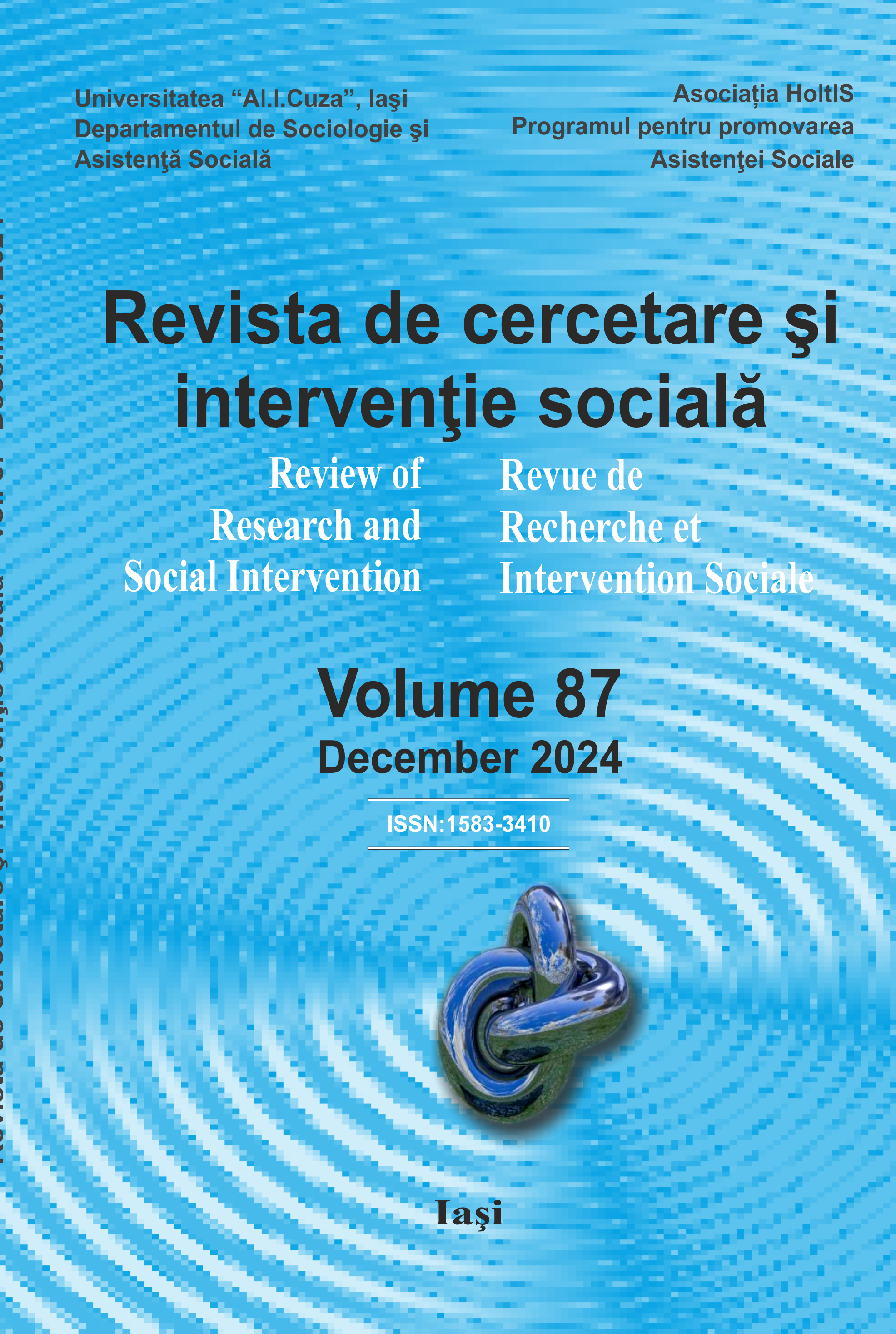
In crisis conditions characterised by war, which leads to critical changes in the functioning of power structures and financial losses for all spheres of the state, political and economic instability, limitations of the legal regime of martial law, the issue of interaction between the parliamentary coalition and state authorities is acute. The overall efficiency of state administration and governance in Ukraine depends on the quality of such cooperation. The mono-majority of the Servant of the People presidential party in the parliament, which was formed as a result of the extraordinary parliamentary elections in 2019, although it simplifies the decision-making process, is a threat to improving the role of the coalition faction in the formation of the government, legislative activity and parliamentary oversight. This study aims to identify bottlenecks and critical factors of inefficiency by analysing the constitutional and legislative framework that regulates the duties of the coalition faction. This study aims to identify bottlenecks and critical factors of inefficiency by analysing the constitutional and legislative framework that regulates the duties of the coalition faction. Given the imperative for a systematic approach to legislative planning and the pivotal role of the coalition faction in parliamentary oversight, the significance of the influence of coalition France on the stability and efficacy of governance is evident. Positive developments in this direction will ensure the transparency and long-term effectiveness of the current government in Ukraine.
More...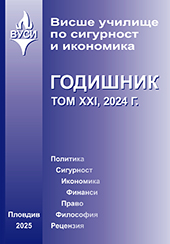
The Polluter Pays Principle is a fundamental concept in environmental law that aims to ensure that those who cause environmental damage bear financial responsibility for preventing and remedying it. In the context of global efforts to address climate change, this principle plays a key role in promoting sustainable development and environmental protection. The report analyzes the implementation of the principle in Bulgaria and the European Union and examines the results of the implementation.
More...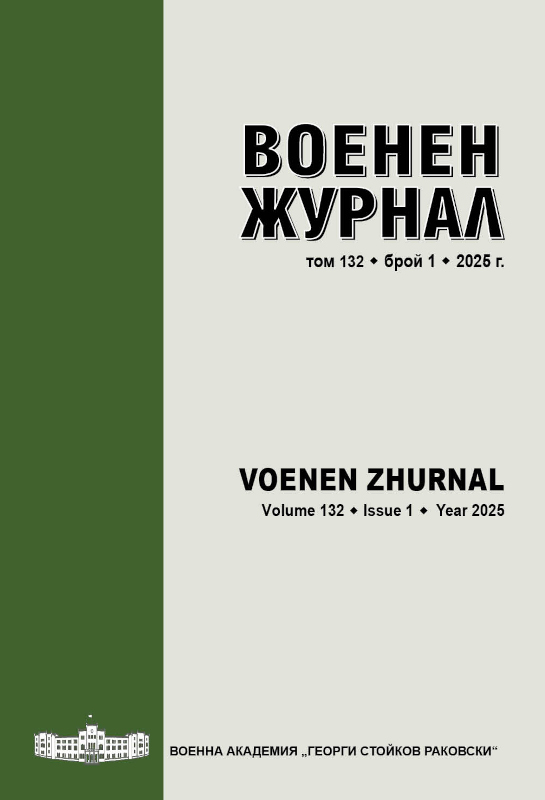
Military and political realities in Europe indicate that urban warfare in cities of various sizes will take a much more important place in future military conflicts, and for the war in Ukraine this can be considered practically determined based on the lessons of the last year. The 2022 Met hodological Guidelines on the Specifics of Urban Warfare of the Russian Armed Forces have been used as the basis for this analysis. The purpose of the analysis is to identify the weaknesses and strengths of Russian formations in urban warfare and to determine some future trends.
More...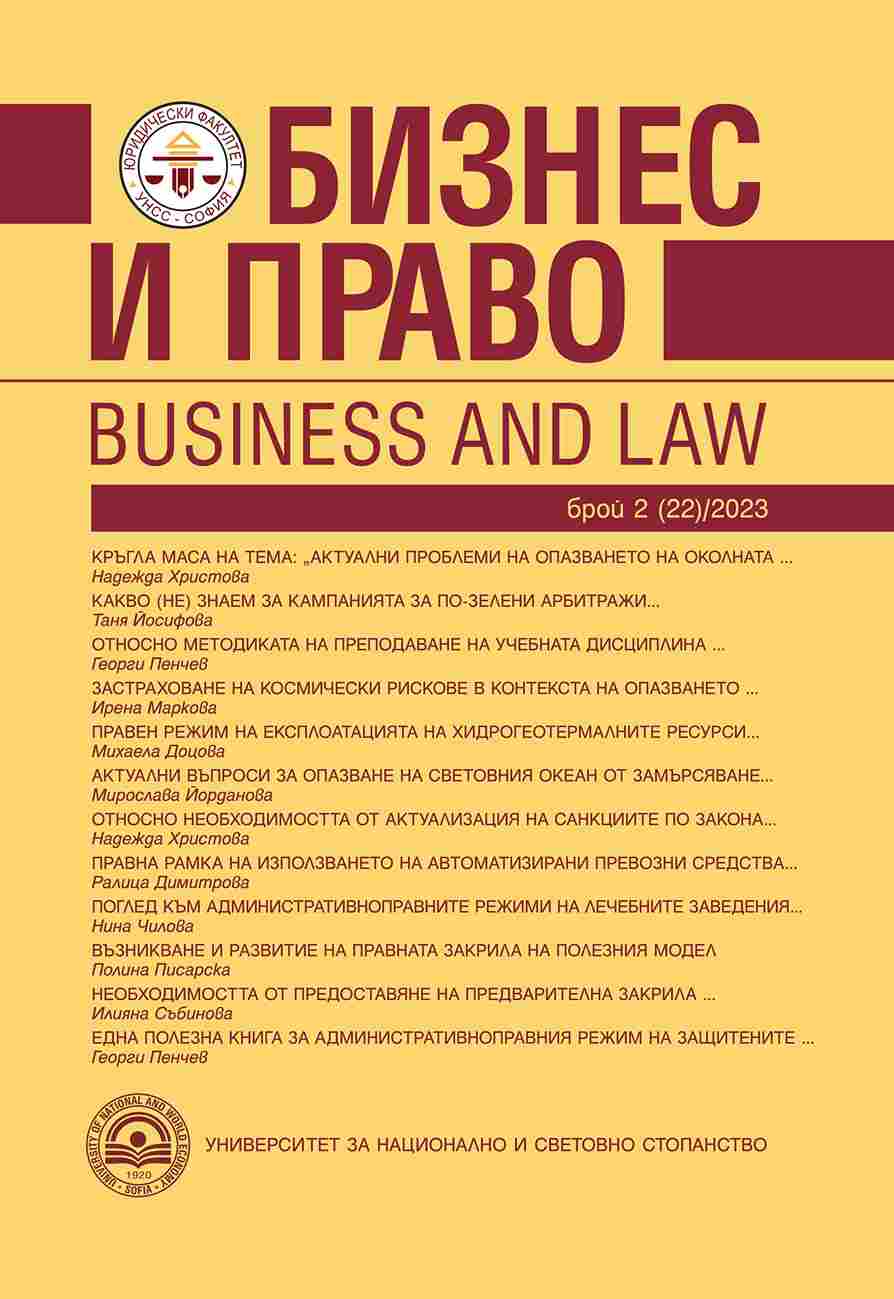
Despite the invaluable role of the world ocean in many aspects of human existence, namely environmental, economic, cultural, social, and scientific, the pollution of the high seas remains an on-going concern. The soft law instruments and practices such as education and prevention of pollution from dumping of plastic waste are ineffective to tackle the problems of the world ocean in a comprehensive manner. For that reason, the international legal instruments in environmental law and the law of the sea, are a crucial tool for offering and effective solution to the problem of polluting the world ocean. In that regard, the international conventions in force are the most important instruments which can produce the necessary legal effects. The transnational nature of the pollution of the world ocean calls for the necessity to develop a respective international framework of protection. The new Global Treaty on the Conservation and Sustainable Use of High Seas Biodiversity adopted in 2023 (‘The High Seas Treaty’) has developed such, but the question with efficiency is still pending since it is not yet in force. Together with the Law of the Sea Convention, those are the two crucial international legal instruments that will offer protection of the important marine areas beyond national jurisdiction. While the Law of the Sea Convention tackles main issues of the sustainable use of non-living resources in the high seas, the High Seas Treaty further develops the protection over living resources of the areas beyond national jurisdiction and protects the marine ecosystems from diminishing biodiversity as a result from pollution. However, the main problem with the new treaty is its ratification by at least 60 countries so that it can come into force and provide the so urgently needed protection of the world ocean from pollution.
More...